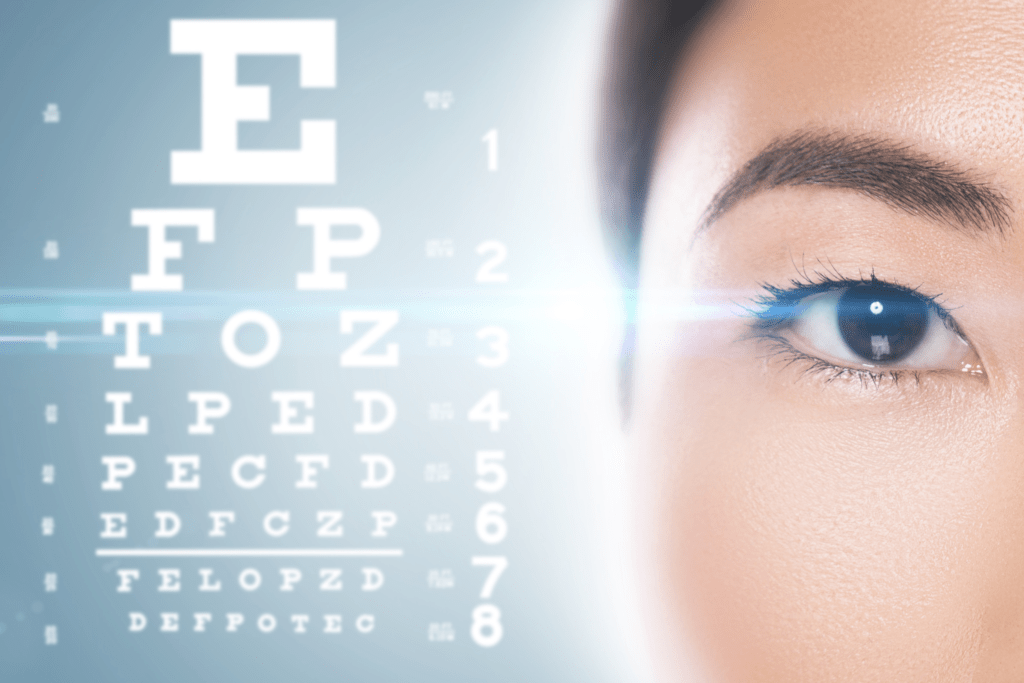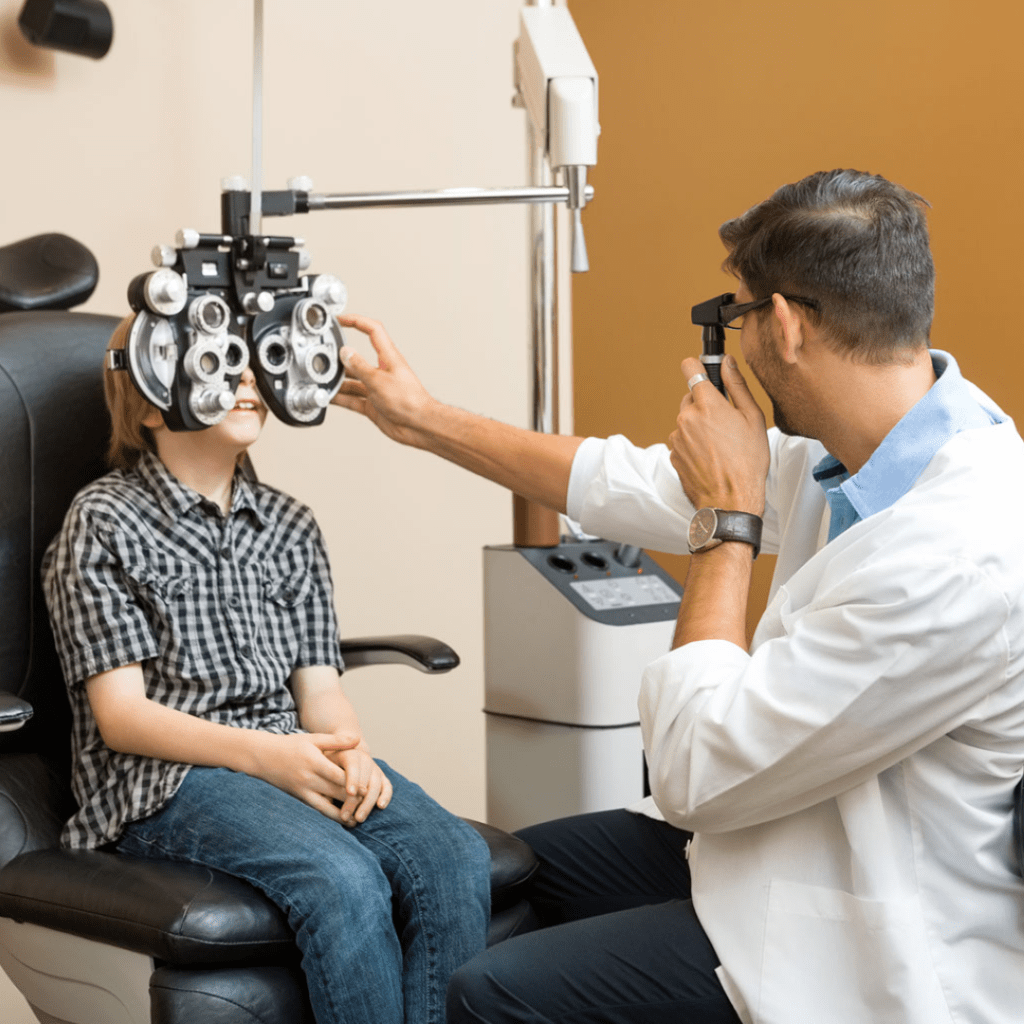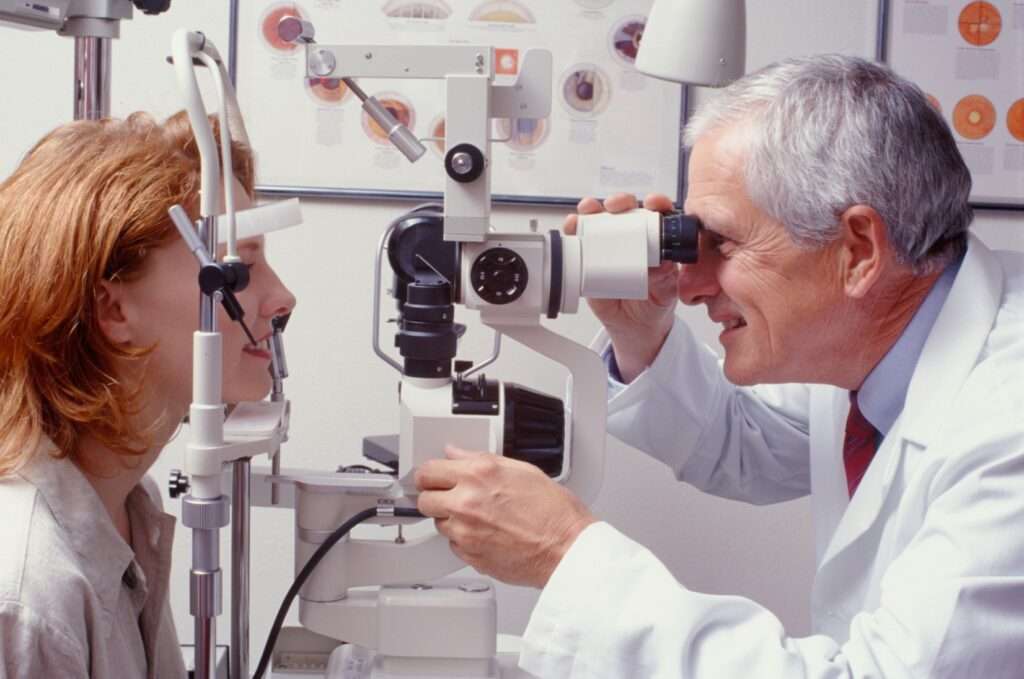Regular eye exams are essential for maintaining good vision and preventing issues related to the eyes, one of the body’s most vital organs. In this article, we will discuss what you can expect during an eye exam, how often you should get one, and why they are important.
What to Expect During an Eye Exam
An eye exam typically takes about 45 minutes to an hour or so. An optometrist or ophthalmologist will examine your eyes during the examination to ascertain whether you require glasses, or contact lenses, or if there are any underlying eye-related problems.
The doctor will begin by inquiring about your medical background and any current medications you may be taking. They will also inquire about any current illnesses or allergies you may have.
Visual acuity testing:

This is the test where you read letters from a chart to assess your vision. It is usually conducted with a Snellen chart, which contains rows of letters that get progressively smaller.
The eye doctor will ask you to read letters from the top row until you can no longer see them clearly.
To pass the visual acuity test, you must be able to read each line from 20 feet away. This will give them an idea of how well your eyes can focus and whether you need glasses or not.
REFRACTION TEST

Refraction determines your prescription for eyeglasses. Here, your doctor will use a variety of tools, including a phoropter or trial frame, which helps him or her select the right prescription for glasses or contacts.
You look through the instrument or lenses, focusing on an eye chart kept at a distance of 6 metres (20 feet). In this test, each eye is tested separately.
The optometrist uses this information to determine whether your eyes are healthy, if you need vision correction or, if you are nearsighted, farsighted, or have astigmatism.
Eye pressure testing:
In this test, a tonometer measures the intraocular pressure inside the eye. This test is critical for those who are at risk of developing glaucoma because high intraocular pressure can lead to the disease.
Slit-lamp exam:

During this exam, the doctor uses a special instrument to shine a bright light into your eyes and check for signs of eye diseases.
The examination involves looking for signs of eye problems that affect the front of the eye, such as the eyelids, conjunctiva, cornea, iris, lens, and even some structures at the back of the eye, such as the optic nerve and macula.
Dilated Eye Exam:
This exam involves putting dilating drops in your eyes to examine the inner eye structures, including the retina, optic nerve, and macula.
This exam is usually done after a refraction test because the dilating drops can change your prescription.
How Often to Get an Eye Exam:
The frequency of eye exams depends on various factors, such as age, overall health, and if you have any eye-related problems. Here is a general guideline on how often you should get an eye exam:
Children: Children should have their first eye exam at 6 months of age, followed by another exam at 3 years old, and then every 2 years thereafter.
Adults: Most people can go two to three years between eye exams. However, The American Optometric Association recommends that adults aged 18 to 64 receive an eye exam at least every two years. If you are over 64, you should get an exam every year.
If you have a history of eye-related problems, such as glaucoma or cataracts, your optometrist or ophthalmologist may recommend more frequent eye exams.
Why Eye Exams are Important
Eye exams are important for several reasons, including:
Early Detection of Eye-Related Problems: Regular eye exams can help detect eye-related problems in their early stages, such as cataracts, glaucoma, and age-related macular degeneration.
Maintaining Good Vision: Eye exams can help maintain good vision and prevent vision loss.
Eye exams are also important for children, as they can detect vision problems that may affect their ability to learn.
To sum up, routine examinations are crucial to maintaining good vision. Visit an eyecare professional right away to get your eyes tested.
